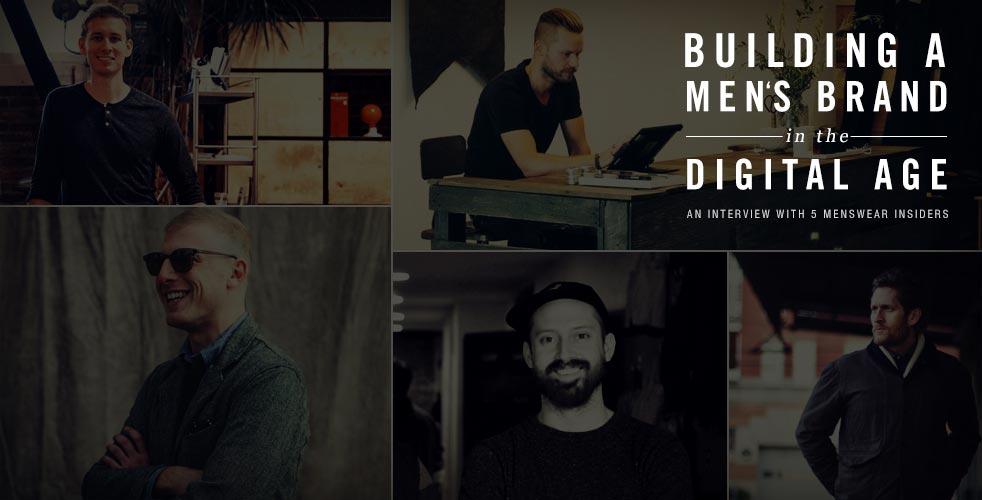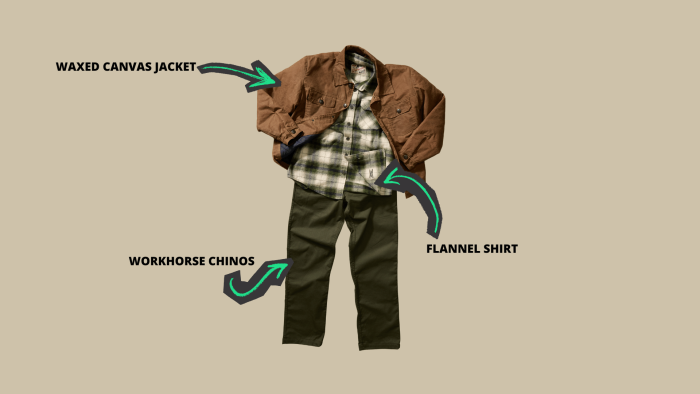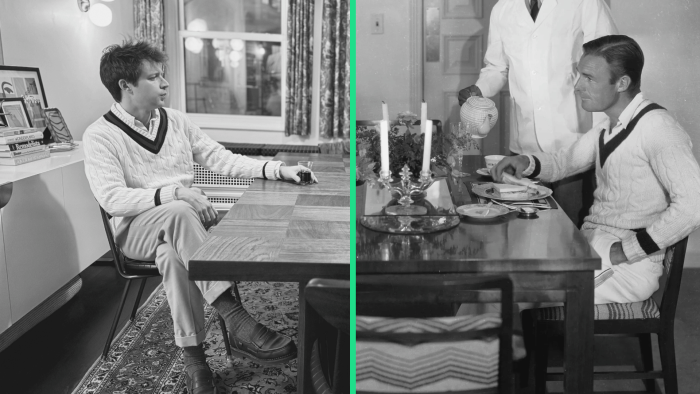 If you wanted to build a menswear brand just 10 years ago, you’d have to attend countless tradeshows and shake thousands of hands to get your name out there. But today, with the power of the Internet and social media at your fingertips, you can grow a brand from behind a screen. We interviewed 5 friends who run shops, sites and labels—Chris Bray from BillyKirk, Sam Larson from Lone Flag, Well-Spent’s Brad Bennett, Stephen Powell from Gustin and Emil Corsillo from Hickoree’s—about the possibilities and challenges of building a brand in the digital age.
If you wanted to build a menswear brand just 10 years ago, you’d have to attend countless tradeshows and shake thousands of hands to get your name out there. But today, with the power of the Internet and social media at your fingertips, you can grow a brand from behind a screen. We interviewed 5 friends who run shops, sites and labels—Chris Bray from BillyKirk, Sam Larson from Lone Flag, Well-Spent’s Brad Bennett, Stephen Powell from Gustin and Emil Corsillo from Hickoree’s—about the possibilities and challenges of building a brand in the digital age.
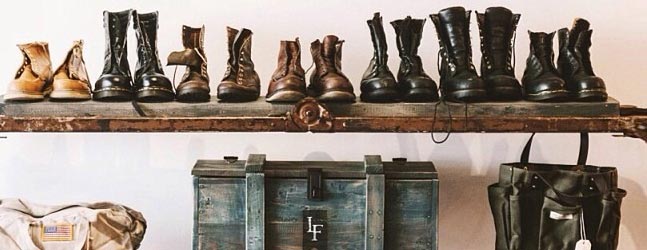 Lone Flag Instagram
Lone Flag Instagram
How are you using the web and social media to grow your brand?
Sam Larson: We leverage Instagram pretty exclusively to purvey the look and feel of our brand. That being said, the hard part is consistently coming up with very good content and never posting junk even if we haven’t posted in a day or two.
Brad Bennett: We’re entirely Internet based, so without the web and social media, we wouldn’t have a brand.
Chris Bray: I want to first tip my hat to sites like Cool Material who have been great advocates for our brand over the years. Admittedly, we’re not on the cutting edge of the social media revolution, but we have plans in the works to improve that facet of Billykirk. We do have regular email blasts, use remarketing programs and have content writers and SEO specialists involved.
Stephen Powell: Direct and immediate feedback is what drives our unique model. Both social media and the web in general allow us to get real-time feedback, which helps us make exactly what people want.
Emil Corsillo: Hickoree’s started out exclusively online and our customer base reflects that. It’s only been about two and a half years since we opened our brick and mortar store in Williamsburg and our online presence gets people to make the trip in person.
 Winter Session
Winter Session
Do you draw inspiration from other guys doing the same thing?
Brad Bennett: To be honest, the number of brands that use their social media well is dwarfed by the number of brands that don’t. That said, the few who do it right are definitely an inspiration.
Stephen Powell: Because our model is so different, we find ourselves using modern communication channels a bit differently. It’s less about pushing an idea than it is about letting our supporters have a loud voice back to us.
Chris Bray: There are hundreds of brands doing similar things to what we are. Etsy has made a cottage industry viable and that’s refreshing to see. It keeps us excited and on our toes.
Sam Larson: Definitely. There are some great brands out there that really shine. 3sixteen does a great job and people are loyal to them because of how they portray themselves via social media.
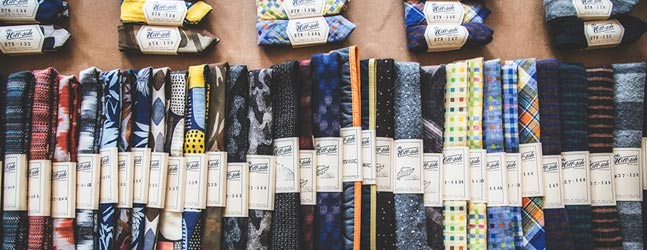 Hickorees Floor 2
Hickorees Floor 2
What advice would you give someone trying to start his or her own brand?
Emil Corsillo: Find your voice. There are tons and tons of brands out there, and it’s absolutely essential to figure out what makes your company and your products different. Once you do, communicate that.
Sam Larson: Be niche. With the advances in social media and web allowing you to reach potential customers all over the world, you shouldn’t try to be everything to everyone. I think consumers are gravitating more and more toward brands that speak to their lifestyle and interests directly.
Brad Bennett: Figure out what you’re bringing to the table that no one else is. If there’s an audience for that, get in front of them anyway you can.
 Gustin Denim
Gustin Denim
Do you think the immense popularity of menswear is just a fad?
Stephen Powell: Guys are definitely becoming more style aware and conscious about how and where their products are made. These things line up closely with what we care about.
Brad Bennett: Guys who put a lot of thought, care and effort into their appearances have been, and always will be, in the minority. That said, for those stylish few, dressing well isn’t a fad–it’s a way of life.
Sam Larson: It’s here to stay. It’s tough to imagine menswear shrinking since it still has such a long way yet to go. We’re based in San Diego where it hasn’t even really hit fully.
 BillyKirk
BillyKirk
How has the Internet changed the way you discover things as a consumer?
Chris Bray: I am old enough to have used the Dewey Decimal System for my research. So my age group really knows how beneficial and quick web research is.
Emil Corsillo: It’s hard to even remember how I shopped before the Internet.
Brad Bennett: It’s changed how I discover things, in that it’s the only way I discover things. The Internet has also ruined brick and mortar store shopping for me—prices are better online and the selection is greater.
 LoneFlag Instagram
LoneFlag Instagram
What makes you follow a brand on social media?
Sam Larson: Compelling content and a connection to the personalities behind the label. Nobody wants to see just product shots. I want a full spectrum look at the brand.
Chris Bray: Quality, useful and consistent content is a big factor. Being an expert in your field and having top-notch photography doesn’t hurt either.
Brad Bennett: When brands use their social media as just another marketing platform, they’re missing the point. I have no interest in being pitched to on Twitter or Facebook—I just want to be informed or entertained.
Emil Corsillo: Creative, beautiful images, and not taking themselves too seriously.

